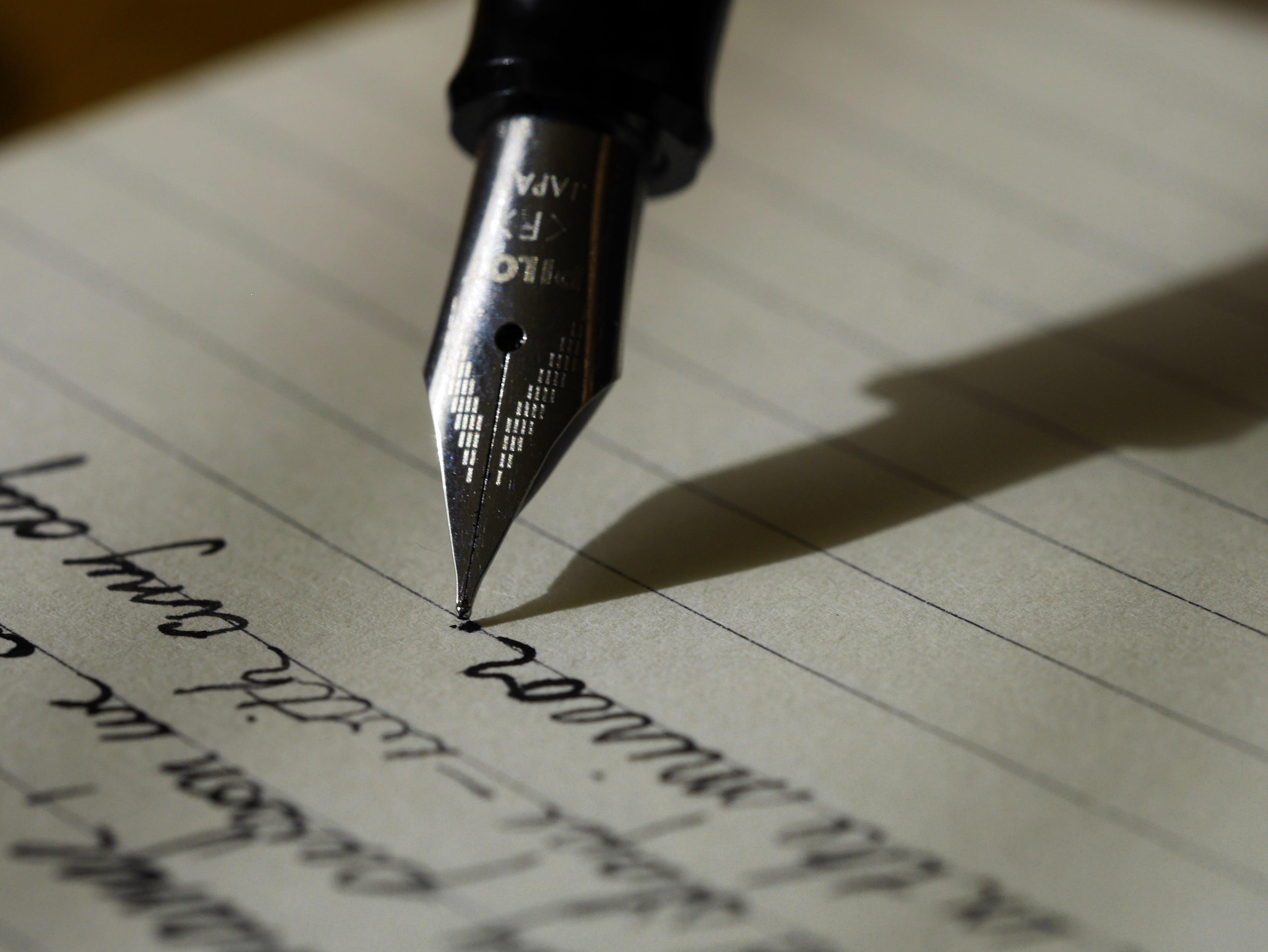Write Like Austen: Getting Started

As editor of the Jane Austen blog, I have the pleasure and privilege of getting to chat to many of our readers and writers about their connections to Austen. Some of you enjoy visiting historical sites and homes, some do academic research, some are voracious re-readers, but many of you are, like Jane, aspiring authors. We also know that many of you are students gearing up to hand in end of year essays and final dissertations. So, with that in mind, we thought we’d look to Jane for inspiration. In this new series of Write like Austen blogs, we’ll be exploring Austen’s writing practice and transforming it into practical tips to help you along with your writing.
- Get Equipped
We’ve all been there - you’re sitting in front of your laptop, staring down a blank Word document, just praying that something, anything will come to mind to write down. It doesn’t help that a new notification from Facebook, Twitter, or Instagram pings into the corner of your screen every few minutes, leading you down the path to distraction and - the horror! - procrastination. Perhaps you’re just destined to go analogue with your writing methods. Jane Austen would have composed her novels using quill and ink, which might sound like a particularly old fashioned way of doing things, but you never know what might work. If you’d like to try out this method, check out our Jane Austen Quill Pen and Ink Set. That might be little too far for you, but maybe you could invest in a vintage typewriter or just rely on the trusty old notebook and biro. Experiment and change things up until you find what works for you.
Then there’s your writing surface. In 1794, Jane Austen was gifted a portable writing desk by her father, which would have provided Austen with the perfect sloped writing surface, no matter where she was. Fortunately, the desk stayed in the Austen family until 1999, when it was donated to the British Library, who have kindly provided more detail on the portable desk. Now, you’d probably be hard pressed to find a portable writing desk these days, but there are all sorts of other surfaces to try out writing on. You might invest in an antique bureau designed for the old fashioned intellectual, or maybe you go for a slick, modern Ikea affair. There’s also nothing wrong with the flip down table tray on your daily train commute too if that's what works for you. I know that, for me, a good train journey can be so inspiring.

- Get in the right headspace by getting in the right physical space
“For six weeks, I allow, Bath is pleasant enough; but beyond that, it is the most tiresome place in the world. You would be told so by people of all descriptions, who come regularly every winter, lengthen their six weeks into 10 or 12, and go away at last because they can afford to stay no longer.”
Henry Tilney, Northanger Abbey
As much as we truly love Bath, many suspect that Austen herself wasn’t the city’s biggest fan. Some have speculated that she struggled to put quill to paper during her time there. Sometimes, you just have to admit that you can’t force an association between a place and writing your magnum opus. I’m not saying you have to pack up and head to a new city, but maybe what you need to get started on your next big project is a change of scenery. This could be as small as trying out a new spot in your home, or as big as booking a fortnight long writing retreat in another country. Like with your equipment, this could be a case of trial and error!
- Accept that you’re going to produce some juvenilia
I am not at all in a humour for writing; I must write on till I am.
- Jane, writing to her sister Cassandra
Finally, we get on to the actual writing. Whilst Austen’s novels are known for the cutting precision of their wit and expert composition, her six novels did not spring forth fully and perfectly formed from her pen. We are so lucky to have a huge quantity of Jane’s manuscript writings, from her early teenage attempts to the things she was working on when she passed.
In this video from the British Library, Professor Kathryn Sutherland shares some of Austen’s manuscript work and demonstrates just how messy some of Jane’s original attempts were - lacking punctuation, struck through, or overpopulated with overzealous use of commas and dashes. We know from these documents that Jane was writing enthusiastically from a young age, generating an impressive output. You can read some of Jane’s shorter writings, juvenilia and poetry on our blog at this link.
All of this stands to demonstrate that you can’t let the perfect be the enemy of the good - start writing now! So what if the first few things you write are rubbish? The more you write, the better you’ll get.
- Find your people
"His having been in love with the aunt gives... an additional interest... I like the idea -- a very proper compliment to an aunt! I rather imagine indeed that nieces are seldom chosen but out of compliment to some aunt or another. I daresay Ben was in love with me once, and would never have thought of you if he had not supposed me dead of a scarlet fever.”
- Austen’s writing advice to her niece, Anna, 1814
Jane Austen was highly reliant on her family for feedback and often used them as a sounding board for new ideas. Notably, Austen wrote prolifically to her sister Cassandra, as well as to her brothers, nieces, and other friends and family members. In her letters, she sometimes explicitly discusses the writing of her novels, and at other times she will write at length about her opinions on a range of different topics. What is clear from her letters is that she drew tremendous value from surrounding herself with people whom she trusted and whose opinion of her work she valued. Finding your people - those who will give you honest feedback and cheer you on - will help you not only to write, but to write well. They will also make sure to burn any correspondence you don’t want making its way into the public domain after you die, if they’re the real deal that is.
That's it - you should be ready to get started! Watch this space for the next instalment in this blog series where we'll be providing as much Austen wisdom as we can on how to get pen to paper! Make sure to let us know what you're working on in the comments down below.




5 comments
Thank you for inspiring new Austen writers! (She loved a good exclamation mark too)
I created a free web tool to help regency writers to write in the style of Austen by checking their words against the words that Austen used. https://www.writelikeausten.com/writer/
Hope it helps someone out there on their writing journey.
Ian Flitcroft
Read these all the first time you posted them and again just now. Got more out of them the second time. Simple points one might think at first glance but actually each point carries a depth and practicality when applied. I’m a beginner novelist but prolific so far and excited to learn more. Looking forward to your next article!
Charlotte
This article is most enjoyable and helpful. It is so easy to assume Jane Austen’s pen flowed effortlessly so the discovery of her manuscripts and her work make her even more delightful and companionable. Love to know about her portable writing desk gifted from her father.
Thank you!
Anonymous
I second all the suggestions in this article. And I did want to respond to the mention of portable desks. They do make them for laptops (I have to use one and have three different ones), so that would work for someone writing in a notebook as well. It just probably wouldn’t have the storage areas.
Anonymous
I love this! Also, I’m about to start my Master’s Thesis on Jane and her novels and feel like I have to wear a bonnet the whole time I’m writing it so that’s probably going to happen.
Emily
Leave a comment
This site is protected by hCaptcha and the hCaptcha Privacy Policy and Terms of Service apply.